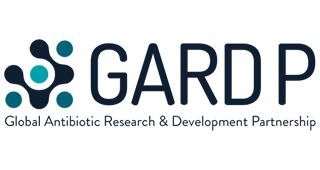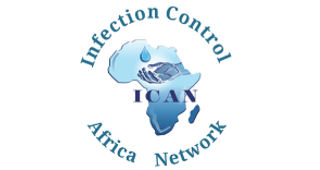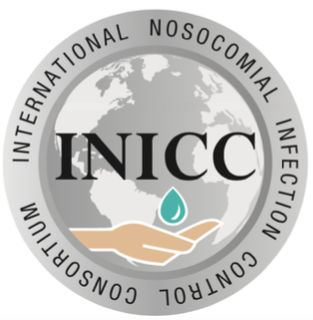 |
|
Maximum: 1 CME cr.,
1 AutoAttendance cr.
Sign in to view your progression
|
Activity Title: Leveraging Vaccines to Reduce Antibiotics Use and Prevent Antimicrobial Resistance
Release Date: September 15, 2021
Estimated Time to Complete Activity: 70 minutes
Statement of Need:
Antimicrobial resistance (AMR) is one of the biggest global health threats. Antibiotics are becoming increasingly ineffective as drug-resistance spreads leading to more difficult to treat infections. Fighting this threat is a public health priority that requires a collaborative global approach across sectors.
Controlling AMR demands improvements in infection prevention, antimicrobial stewardship, and antimicrobial discovery. A powerful measure to reduce the use of antimicrobials, and hence development of resistance, is to prevent the occurrence of infections. Vaccines can impact AMR in two ways. Vaccines can reduce or eliminate the risk of infection due to antibiotic-resistant strains, for example pneumococcal vaccine. Vaccines can also have a secondary effect on AMR by preventing antibiotic use by reducing the rates of viral febrile illness episodes and the likelihood of secondary bacterial infections following the prevented episode. Viral infections are a strong driver of use and misuse of antibiotics and vaccines are an impactful and effective public health measure for the prevention of many viral infections. Single or combination vaccines may ultimately result in synergistic effects on decreasing antimicrobial use and therefore resistance. In this way, vaccines targeting viral illnesses become a tool to reinforce policies of antibiotic stewardship.
WHO has developed a strategy to articulate the role of vaccines against AMR and an action framework that describes a vision for vaccines to contribute fully, sustainably and equitably to the prevention and control of antimicrobial resistance by preventing infections and reducing antimicrobial use. During this webinar, speakers will discuss how vaccines targeting viral illnesses contribute to the battle against AMR by preventing infections and by reducing antimicrobial use.
Faculty:
Anthony Fiore
Associate Director for Policy and Liaison Activities
Centers for Disease Control and Prevention
Professor Paul Anantharajah Tambyah
Professor, Department of Medicine
Senior Consultant, Division of Infectious Disease, University Medicine Cluster, National University Hospital
Joint Appointment: Visiting Consultant, Singapore Armed Forces
Technical Requirements
This site and its activities are best viewed using the latest versions of the Chrome, Edge, Firefox and Safari browsers. For interactive content a broadband connection is required. For CME/CE activities featuring audio you need a sound card and speakers.
Our activities may require JavaScript to be enabled on your computer. If you are having difficulty viewing pop-up windows, click here for instructions on enabling JavaScript.
Contact Information
If you have questions about this CME activity, please contact The International Society for Infectious Diseases at info@isid.org.
For technical support issues, please contact Multilearning at support@multilearning.com
Upon completion of this module, participants will be able to:
- Discuss Antimicrobial resistance (AMR), one of the biggest global health threats.
- Explain why antibiotics are becoming increasingly ineffective as drug-resistance spreads leading to more difficult to treat infections. Discuss the importance of fighting this threat in a collaborative global approach across sectors.
- Understand the importance of controlling AMR, and the steps needed to do it - including mproving infection prevention, antimicrobial stewardship, and antimicrobial discovery.
- Discuss the impact of vaccines on AMR
- Discuss the WHO strategy as regards the role of vaccines against AMR and their action framework that describes a vision for vaccines to contribute fully, sustainably and equitably to the prevention and control of antimicrobial resistance by preventing infections and reducing antimicrobial use.
The target audience for this module is physicians, nurses, public health officials, microbiologists, and other health professionals.
- Leveraging Vaccines to Reduce Antibiotic Use and Prevent Antimicrobial Resistance: An Action Framework and annex to Immunization Agenda 2030. World Health Organization, 2020. www.who.int/publications/m/item/leveraging-vaccines-to-reduce-antibiotic-use-and-prevent-antimicrobial-resistance
- Klugman KP, Black S. Impact of existing vaccines in reducing antibiotic resistance: Primary and secondary effects. Proc Natl Acad Sci U S A. 2018 Dec 18;115(51):12896-12901. doi: 10.1073/pnas.1721095115. https://pubmed.ncbi.nlm.nih.gov/30559195/
- Vaccines for AMR. Report commissioned by Wellcome Trust, "Vaccines to tackle drug resistant infections: An evaluation of R&D opportunities". https://amr.solutions/2018/10/09/vaccines-for-amr-a-major-review-of-rd-opportunities/
- World Health Organization (WHO). Antimicrobial stewardship programmes in health-care facilities in low- and middle-income countries. A WHO practial toolkit. 2019. https://www.who.int/publications/i/item/9789241515481
- World Health Organization (WHO). Immunisation Agenda 2030: A Global Strategy to Leave No One Behind. 2020. https://www.who.int/teams/immunization-vaccines-and-biologicals/strategies/ia2030
Disclosure Policy
In accordance with the EACCME Standards for Commercial Support, the International Society for Infectious Diseases (ISID) requires that individuals in a position to control the content of an educational activity disclose all relevant financial relationships with any commercial interest. ISID resolves all conflicts of interest to ensure independence, objectivity, balance, and scientific rigor in all our educational programs. Furthermore, ISID seeks to verify that all scientific research referred to, reported, or used in a CME/CE activity conforms to the generally accepted standards of experimental design, data collection, and analysis. ISID is committed to providing learners with high-quality CME/CE activities that promote improvements in health care and not those of a commercial interest.
Activity Staff Disclosures:
The planners, reviewers, editors, staff, or other members at the International Society for Infectious Diseases who control content have no relevant financial relationships to disclose.
ISID Knowledge Exchange and E-Learning Platform Organizing Committee members are listed here along with Committee members’ disclosure forms.
Faculty Disclosures:
Antony Fiore has no potential conflict of interest to report
Professor Paul Anantharajah Tambyah
Affiliation/Financial Interest and Name of Commercial Company
Grants/Research Support: Roche, Arcturus, Johnson and Johnson
Honoraria or Consultation Fees: Takeda and Roche
Moderator Disclosures:
Marc Mendelson has no actual or potential conflict of interest in relation to this program/presentation
Afreenish Amir has no actual or potential conflict of interest in relation to this program/presentation
Disclosure of Unlabeled Use
The International Society for Infectious Diseases requires CME faculty (speakers) to disclose when products or procedures being discussed are off label, unlabeled, experimental, and/or investigational, and any limitations on the information that is presented, such as data that are preliminary, or that represent ongoing research, interim analyses, and/or unsupported opinion. Faculty in this activity may discuss information about pharmaceutical agents that is outside of US Food and Drug Administration approved labeling. This information is intended solely for continuing medical education and is not intended to promote off-label use of these medications. ISID does not recommend the use of any agent outside of the labeled indications. If you have questions, contact the Medical Affairs Department of the manufacturer for the most recent prescribing information.
Disclaimer
The International Society for Infectious Diseases presents this information for educational purposes only. The content is provided solely by faculty who have been selected because of recognized expertise in their field. Participants have the professional responsibility to ensure that products are prescribed and used appropriately on the basis of their own clinical judgment and accepted standards of care. The International Society for Infectious Diseases, and the former commercial supporter assume no liability for the information herein.
Copyright Information
Copyright © 2021 by the International Society for Infectious Diseases. Any unauthorized use of any materials on the site may violate copyright, trademark, and other laws. You may view, copy, and download information or software ("Materials") found on the Site subject to the following terms, conditions, and exceptions:
• The materials are to be used solely for personal, noncommercial, informational and educational purposes. The materials are not to be modified. They are to be distributed in the format provided with the source clearly identified. The copyright information or other proprietary notices may not be removed, changed, or altered.
• Materials may not be published, uploaded, posted, transmitted (other than as set forth herein), without the International Society for Infectious Diseases' prior written permission.
Privacy Policy
The International Society for Infectious Diseases protects the privacy of personal and other information regarding participants and educational collaborators. The International Society for Infectious Diseases will not release personally identifiable information to a third party without the individual's consent, except such information as is required for reporting purposes to the ACCME.
The International Society for Infectious Diseases maintains physical, electronic, and procedural safeguards that comply with federal regulations to protect against the loss, misuse, or alteration of information that we have collected from you.
Additional information regarding the International Society for Infectious Diseases Privacy Policy and ISID’s Knowledge Exchange and E-Learning Platform Privacy Policy can be viewed at https://isid.org/privacy-policy/ and https://exchange.isid.org/isid/legal/terms-and-conditions.
|
ACCREDITED ACTIVITY
Leveraging Vaccines to Reduce Antibiotics Use and Prevent Antimicrobial Resistance
|
|







